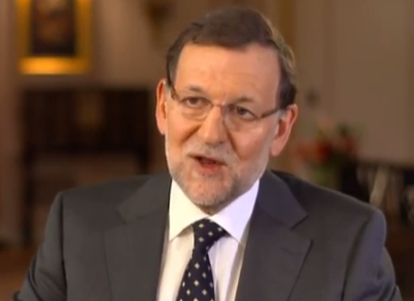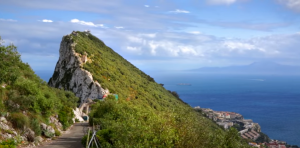
The Guardian, UK: Mariano Rajoy, once viewed as the great survivor of Spanish politics, has been ousted as prime minister in a vote of no confidence after several former members of his party were convicted of corruption in a case that proved a scandal too far.
He will be replaced by Pedro Sánchez, the leader of Spain’s opposition socialist PSOE party, which tabled the motion to unseat him.
It cements a remarkable comeback for Sánchez, who regained his leadership a year ago after a PSOE coup saw him deposed over his steadfast refusal to let Rajoy back into office following two inconclusive general elections.
The socialist motion won the support of 180 MPs – four more than the 176 needed in the 350-seat parliament. There was one abstention and 169 MPs opposed it.
Sánchez vowed to address the “pressing social needs” of Spaniards after years of austerity under Rajoy’s conservative government, adding that he was “aware of the responsibility and the complex political moment of our country”.
After the vote, Rajoy went over to Sánchez in the chamber and shook the incoming leader’s hand.
“It has been an honour to be the prime minister of Spain,” Rajoy told parliament shortly before the vote. “It has been an honour to leave a better Spain than the one I found. I hope that my successor will be able to say the same when his time comes.”
He said he believed he had done his duty as prime minister, adding: “My thanks to the Spanish people for lending me their support and understanding. And good luck to everyone for the good of Spain.”
Rajoy, who served as premier for seven years, had managed to weather a string of corruption scandals within his People’s party (PP) but was unable to withstand political anger after Spain’s highest criminal court found the party had benefited from an enormous and illegal kickbacks-for-contracts scheme, known as the Gürtel case.
The 63-year-old’s fate was sealed on Thursday afternoon when the Basque Nationalist party (PNV) joined the anti-austerity Podemos party and the two biggest Catalan pro-independence parties in backing the PSOE motion.
The PNV said it was reluctant to get involved in Spanish politics, but it had been compelled to do so for ethical and political reasons.
“This isn’t simple; this isn’t easy,” said the PNV spokesman, Aitor Esteban. “But we have to do it.” He said last week’s court verdict had marked “a before and an after”.
Rajoy had mounted a fierce defence of his party and government in Thursday morning’s debate on his leadership, accusing the PSOE of opportunism and forgetting about its own corruption scandals.
“With what moral authority are you speaking? Are you perhaps Mother Teresa of Calcutta?” he asked.
“There have been corrupt people in the PP, but the PP is not a corrupt party.”
However, Rajoy did not take part in the afternoon session, which stretched into the evening. It later transpired he had gone for an eight-hour lunch at a smart restaurant in central Madrid, from which he emerged at around 10pm.
Albeit unwillingly, Rajoy has made Spanish political history by becoming the first prime minister to be removed from office through a motion of no confidence.
Last July, he became the first serving Spanish prime minister to testify in a criminal case, when he was called to give evidence in the Gürtel case.
Sánchez, 46, has promised to call elections but has said his minority government will spend a few months focusing on social and educational reforms before taking Spain to the polls.
His time in office is unlikely to yield profound changes and he will have to heed the demands of the parties who backed his motion. He successfully wooed the PNV by promising to stick to Rajoy’s recently approved budget, which includes increased investment in the Basque country.
The PSOE leader also held out his hand to the Catalan independence parties, saying he was willing to engage in dialogue over the long-running territorial and political crisis.
The leader of the centre-right Ciudadanos, Albert Rivera, who had not voted to remove Rajoy, said his party would be “very attentive to the concessions” made to Basque and Catalan nationalists. He also called for early elections, describing the change of government in a parliamentary vote as “not good news for Spain”.
“Sánchez will have a hard time implementing policy initiatives given that the PSOE has only 84 MPs in the 350-seat chamber,” said Antonio Barroso, an analyst at the political risk advisory firm Teneo Intelligence.
“The new administration could push for piecemeal labour market and fiscal measures. But the room for big economic policy shifts will be very limited, and early elections within 12 months are the most likely outcome.”




